There are now only three more weeks left in Ordinary Time, and the Gospel readings we get over the next couple weeks will more and more begin to reflect on the Second Coming of Christ… the End of the World… The Last Things…
And so for the next three weeks, I’m going to be doing a Homily Series on that classic theme:
The Four Last Things:
Death, Judgment, Heaven, and Hell…
This Sunday, we will be meditating on Death.
It’s fitting we do so, because we are still at the beginning of the month of November, during which the Church has traditionally prayed in a particular way for the dead.
On November 2nd, we celebrated All Souls Day, where we prayed for all the faithful departed in Purgatory. This entire month, in fact, the Church offers special indulgences for anyone who goes and visits a cemetery to pray for the dead. We also have our Book of the Dead available in the Commons where you can write down the names of the people you know who have died so that we can continue praying for them.
By praying for the dead, we not only help any and all souls who are still being purified in Purgatory so they can receive the fullness of Heavenly glory… but we also have a chance to meditate on our own death… Our own end. Our own last day.
Will we have a good, edifying death?
Will we be prepared well for that moment when this mortal life ends?
Memento Mori! — Remember your death!
Maybe we don’t like talking or thinking about it — but the fact is it’s a very good and healthy thing to meditate on Death… not because we’re feeling morbid and spooky… but because we know that one day, it’s gonna happen to each and every last one of us!
Countless saints down through the ages have very intentionally kept a skull on their desk to remember that one day… that will be them. I have a really cool sweatshirt with a skull on the back of it with that Latin phrase — Memento Mori — plastered across it… I like wearing it. When I started wearing it around my last parish, all the older folks at the parish started whispering to each other: “Why is Fr Anthony wearing that leather biker jacket with a skull and crossbones on the back of it?”
They were sort of scandalized!
But I told them: It’s not a biker jacket! It’s actually a very Catholic thing:
Memento Mori…
The Rule of St. Benedict encourages us “to keep death before one’s eyes daily.” The book of Ecclesiastes says: “Someone who is always thinking about happiness is a fool. A wise person thinks about death.”
So let’s all get a little wiser this Sunday… and think about death!
In our first reading today, the prophet Elijah encounters a widow and her son who are facing death.
Elijah asks the woman to bring him a cupful of water and some bread, but the widow answers him: “As the Lord, your God, lives, I have nothing baked. There is only a handful of flour in my jar and a little oil in my jug. Just now I was collecting a couple of sticks, to go in and prepare something for myself and my son… when we have eaten it, we shall die.”
The drought had brought this poor woman and her little boy to death’s doorstep. They were preparing to share their last meal together… and then… the end would come. You can hear the defeat… She is resigned to their fate. It’s over. They did their best to try and survive, but they are at the end of their rope. The reality of death is upon them.
In our Gospel, we meet yet another widow at death’s doorstep — All the wealthy people are coming to the treasury to donate their offerings… and finally a poor widow comes along… and she puts in only two coins… the very last of her money.
…How would she survive now? How would she even feed herself?
Both of these widows from our readings have death on their mind. They both have so little left to their name, and in a real way, they are both accepting the end of their mortal livelihood.
What can we learn from them?
Well — I think we can first and foremost learn…humility.
Both of these women are acting very humbly. It is a very humble thing to accept death… to simply admit the truth: “I am going to die.”
In fact, let’s humble ourselves, and declare that truth together right now: “I am going to die.”
It’s true. Humility is truth.
We don’t know when it’s gonna happen. We don’t know how.
Only God does… but it is a guaranteed thing.
As our second reading from the Letter to the Hebrews said: “It is appointed that human beings die once, and after this the judgment.”
We should humbly accept that fact.
Death, we know, is a punishment for sin. It’s what we actually deserve… and it is an act of profound humility to admit that. Of course, we also know that “God did not make death” — the Scriptures make that much clear. So the only explanation for this universal experience of death is that something has gone wrong…
And that’s what we believe DID happen. When Adam and Eve sinned… something went wrong. Something broke… Spiritual death took place… and later on, physical death as well. The Lord warned our First Parents: “From that tree you shall not eat; when you eat from it you shall die.”
Disobedience to God’s plan… opposition to His life-giving will…produces death in us! Death, therefore… is not natural. It is a consequence. A consequence of sin.
And there’s no use pretending like consequences will never happen to us.
Only the very proud person raises a fist and says: “There are no consequences for my actions!”
Only the proud person goes around with “long robes, accepting greetings in the marketplaces, seats of honor in synagogues” … showing off, devouring the poor, acting like nothing bad will ever happen to them! As if they’ll just keep going on and on forever…
How different these two widows are! When they accept their fate and admit to themselves that the end is near… that death is close — they are HUMBLY remembering that they are sinners, and that death is the necessary consequence.
St. Paul sums this up very simply when he says: “The wages of sin is death.”
The proud person avoids this fact for as long as possible — He foolishly thinks in his heart: “That’ll never happen to me! Or at least… not for a very long time! I just gotta stay healthy. I just need to watch my weight. I just need to exercise and eat super foods. In the meantime, maybe humanity can finally outsmart death! Maybe we’ll finally engineer some pill that makes these bodies last forever!!!”
Memento Mori, my friend.
Have a slice of humble pie: You are dust, and to dust you shall return.
In fact, at this point in the homily, I’d like to offer you all just a few, brief, very PRACTICAL words about death… Because it is an act of humility to deal with this stuff now… to think about this sooner rather than later.
The reality is… when someone we love is dying and ultimately passes away, the world kinda stops. Things get confusing. We don’t always know what the best thing to do is, and maybe we won’t know what the Church has to offer… So I want to give some practical guidance for you:
- First of all, whenever a Catholic is sick — you should call a priest. And you should call the priest well before the person is on death’s doorstep so they can receive Anointing of the Sick… ideally while they can still go to Confession and receive Holy Communion. So please — Don’t wait until the last minute!!! The Sacraments — including the Last Rites — are only able to be offered to the living!!! They can be administered when the person is unconscious… but it’s even more beautiful and powerful when the person is fully awake and able to participate more fully.
- As the person is dying — be sure to pray with them. Pray the rosary. Read Scripture out loud. Ask St Joseph, patron of a good death, to help them. Ask Our Lady to comfort and encourage them on their journey.
- But when the person does ultimately die, the next thing to do is call the local parish church as soon as possible or have the funeral home do so in order to start arranging a funeral mass. The Mass of Christian Burial is the most powerful thing you can do for your loved one’s soul — And it also brings much needed closure and comfort for the family who is in grief. It breaks my heart when lifelong Catholics don’t get a Catholic funeral mass… So think about that now, and make sure it happens.
- On the question of Cremation — The Catholic Church DOES permit the cremation of the body, BUT only on the condition that it is done while also holding faith in the Resurrection of the Dead. So basically we are saying that the body matters. It is holy. We treat the cremated ashes with the same dignity and respect that we would the body in a casket…because on the Last Day, we believe that Jesus will raise that person from the dead!
- And so for that reason, the Church does not permit the scattering of ashes, and the ashes ought to be buried in a fitting, holy place, namely… a cemetery or a columbarium. So I encourage you — if you have the urn of a loved one at home, think about giving us a call. We can help you to learn more about laying your loved one to rest in a reverent place of peace where you and others can come visit and pray for them! Remember that burying the dead is one of the 7 corporal works of mercy, so really… it’s just the right thing to do.
Ok… I wanted to get some of those practicals out there, because there aren’t many opportunities to do so. And we need to humbly attend to these sorts of things.
Humility is always key. — “God resists the proud, but gives grace to the humble”
These two widows we’ve been meditating on are humble — They come to grips with death. They deal with it.
And therefore, they can receive grace! They receive hope from the Lord!!!
In our first reading, Elijah encourages the widow, telling her: “Do not be afraid. …The Lord the God of Israel says, ‘The jar of flour shall not go empty, nor the jug of oil run dry, until the day when the LORD sends rain upon the earth!’”
And it happens! Her flour multiples… Her oil does not run out!
In the Gospel story, Jesus notices when the poor widow throws those two little coins in — he calls his disciples together and points out this good deed, saying: “Amen, I say to you, this poor widow put in more than all the other contributors to the treasury. For they have all contributed from their surplus wealth, but she… from her poverty… has contributed all she had, her whole livelihood.”
Jesus is pointing out her generosity, saying: “Guys, take a look at this. THIS is what I’m talking about — THIS is what it means to go all in for God. To hold nothing back from Him…”
Just two chapters earlier in the gospel of Mark, Jesus promised his disciples: “Amen, I say to you, there is no one who has given up house or brothers or sisters or mother or father or children or lands for my sake and for the sake of the gospel who will not receive a hundred times more now in this present age: houses and brothers and sisters and mothers and children and lands, with persecutions, and eternal life in the age to come. But many that are first will be last, and the last will be first.”
This widow gave up everything she had… She was last… and yet, when Jesus calls attention to her and her good deed, he is making very clear that she will be among the FIRST in His Kingdom!
Christians need to learn how to deal with death differently than the rest of the world. Not with stoic indifference… and certainly not a kind of anxious fear or avoidance.
No, we need to face death with humility of heart. With deep, confident trust in God. To live is Christ, and death is gain! We’ve already died by our baptism! Now we die daily! We “die before we die” as CS Lewis once put it!
We remember and hold on to Jesus’ words: “I am the resurrection and the life; whoever believes in me, even if he dies, will live, and everyone who lives and believes in me will never die.”
Memento Mori!
Remember your mortal death… remember it with all humility… and believe that even though we die, we will live forever in Jesus.
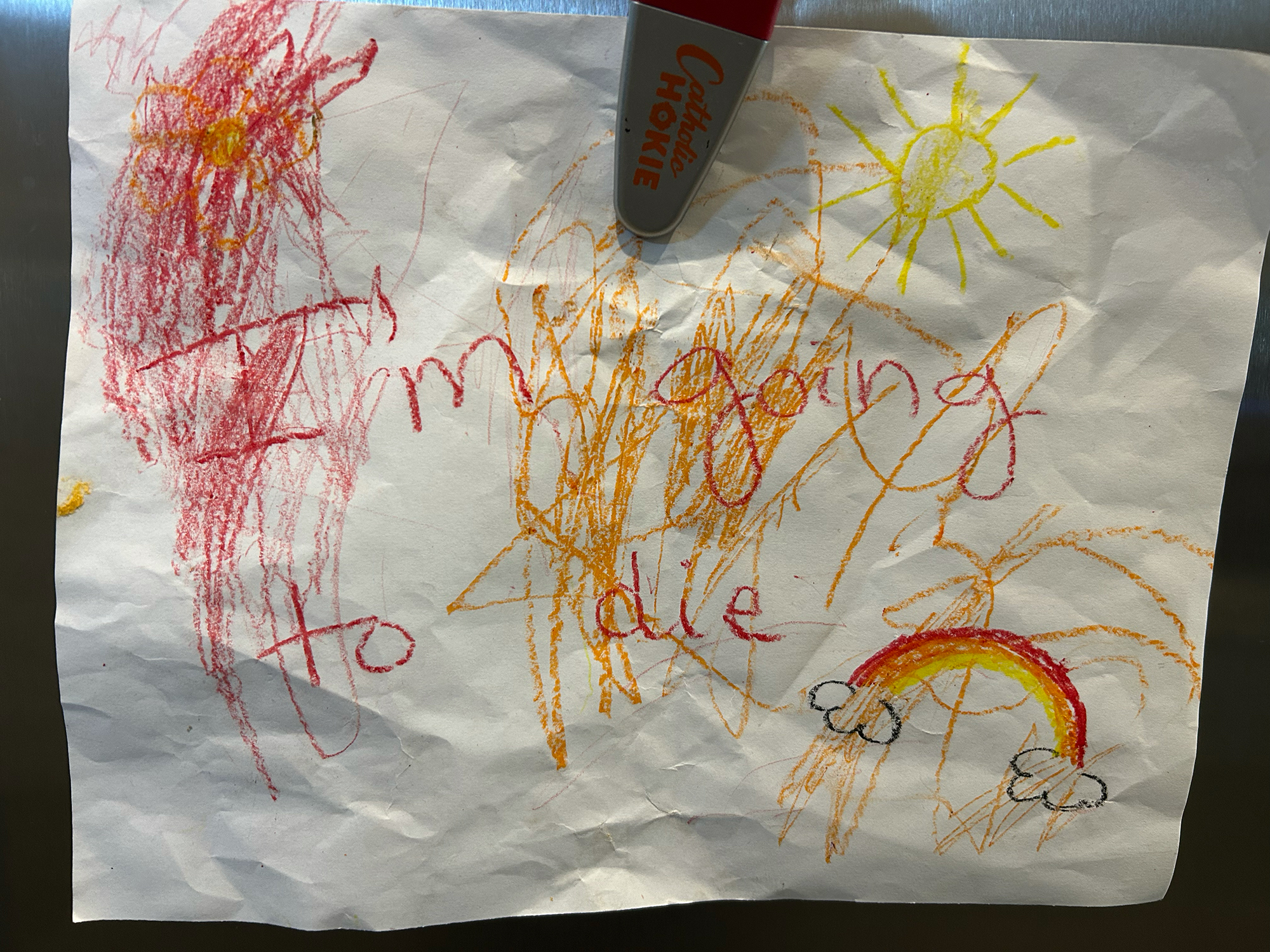
This is a drawing a little girl gave me after delivering this homily. I thought it was hilariously cute.
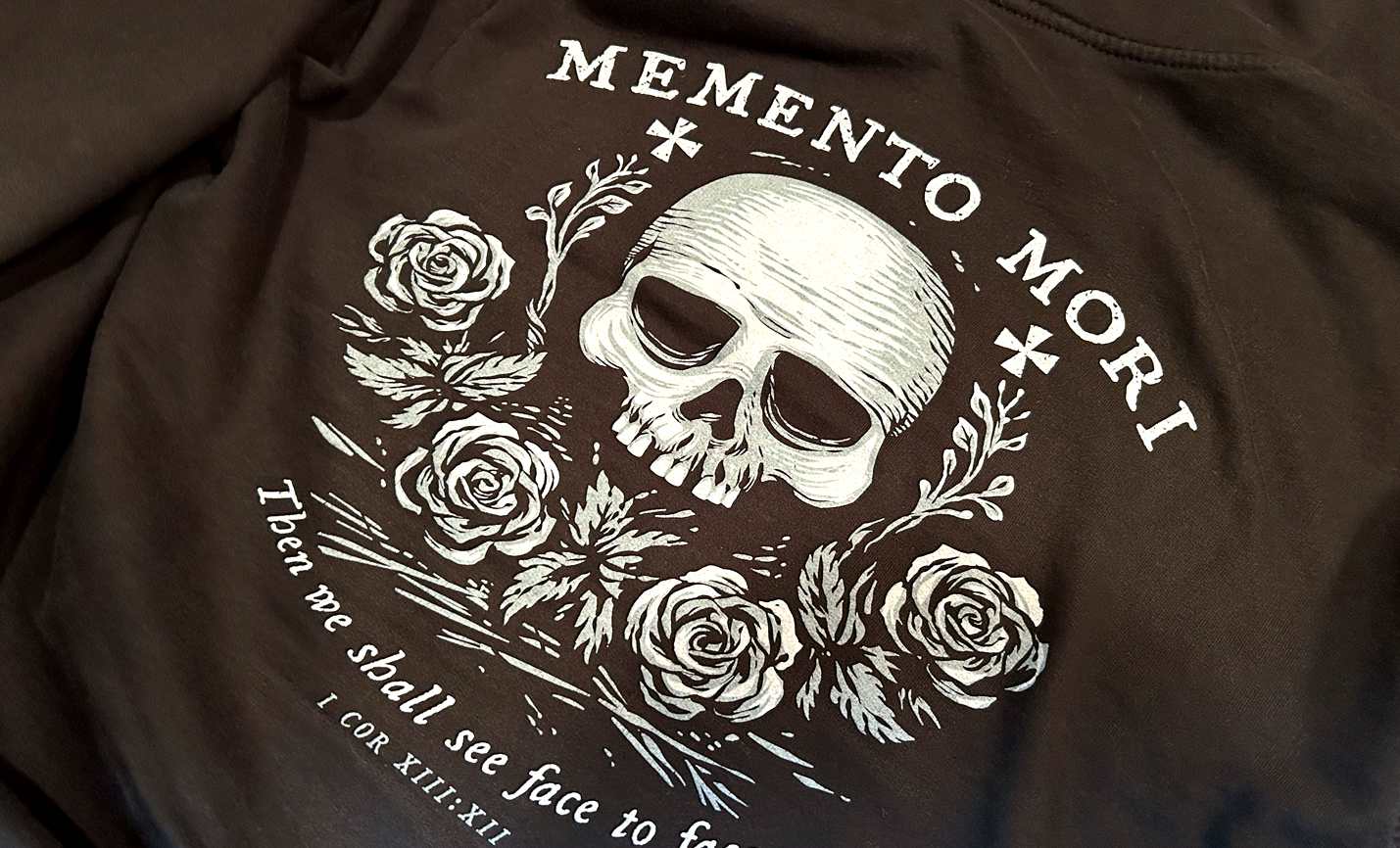
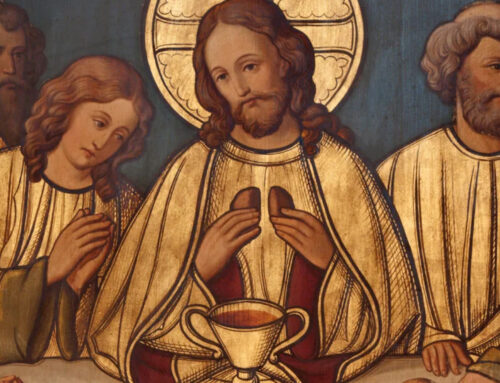

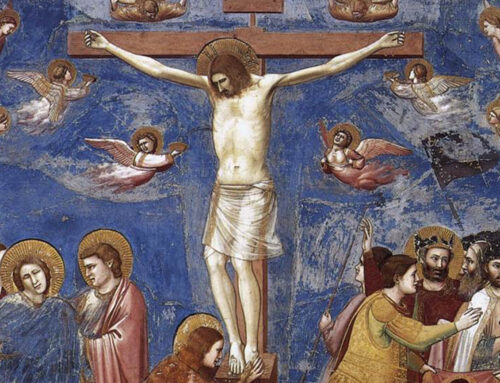
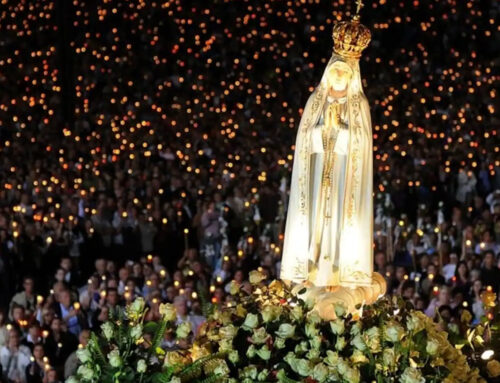
Leave A Comment